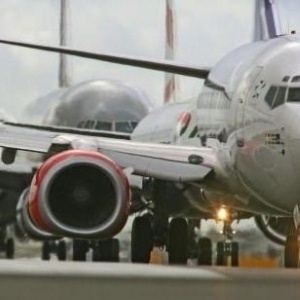Heathrow in crisis? Chronic overcrowding at world’s busiest airport

Vast quantities of fuel are being wasted and thousands of passengers are facing flight delays due to overcrowding at Heathrow, the world’s busiest airport.
Sixty percent of arrivals into Heathrow are caught up in holding patterns, wasting fuel and causing delays to passengers, according to new figures released by air traffic control service NATS.
Planes circulate above the airport for a cumulative 55 hours a day, which wastes 190 tonnes of fuel and costs £119,000 a day. This wastage discharges 600 tonnes of CO2 into the skies above London, according to the report.
Heathrow is the world’s busiest airport, operating at 98 percent capacity and handling more flights on just two runways than any other airport in the world.
Jon Proudlove, managing director at NATS, told The Times: “It is not a great environmental story and it is not something we will be shouting from the rooftops. But it is important that people know that when you are operating at 98 per cent capacity and you have the two most utilised pieces of infrastructure in the world [Heathrow and Gatwick] then one of the results is that you have airborne holding.”
With 476,000 flights a year and just two runways, Heathrow is the busiest international hub in the world.
ADVERTISEMENT
The release of the report follows last week’s announcement by British Airways, Heathrow’s biggest customers, that it had given up hope of a third runway being built. The flag carrier said it was now seeking alternatives, including developing hubs in cities abroad, such as Madrid.
Mayor of London, Boris Johnson, said Heathrow had been operating close to capacity for years and “perpetually struggling to fit a quart into a point pot.”
He backed a report calling for a brand new four-runway island airport to the east of London that would improve the quality of life in the capital and secure vital trade links with emerging market economies.
Average passengers delays typically range from four to 10 minutes, rising to 20 minutes during the late morning peak, when up to 40 jets can stack over London.

